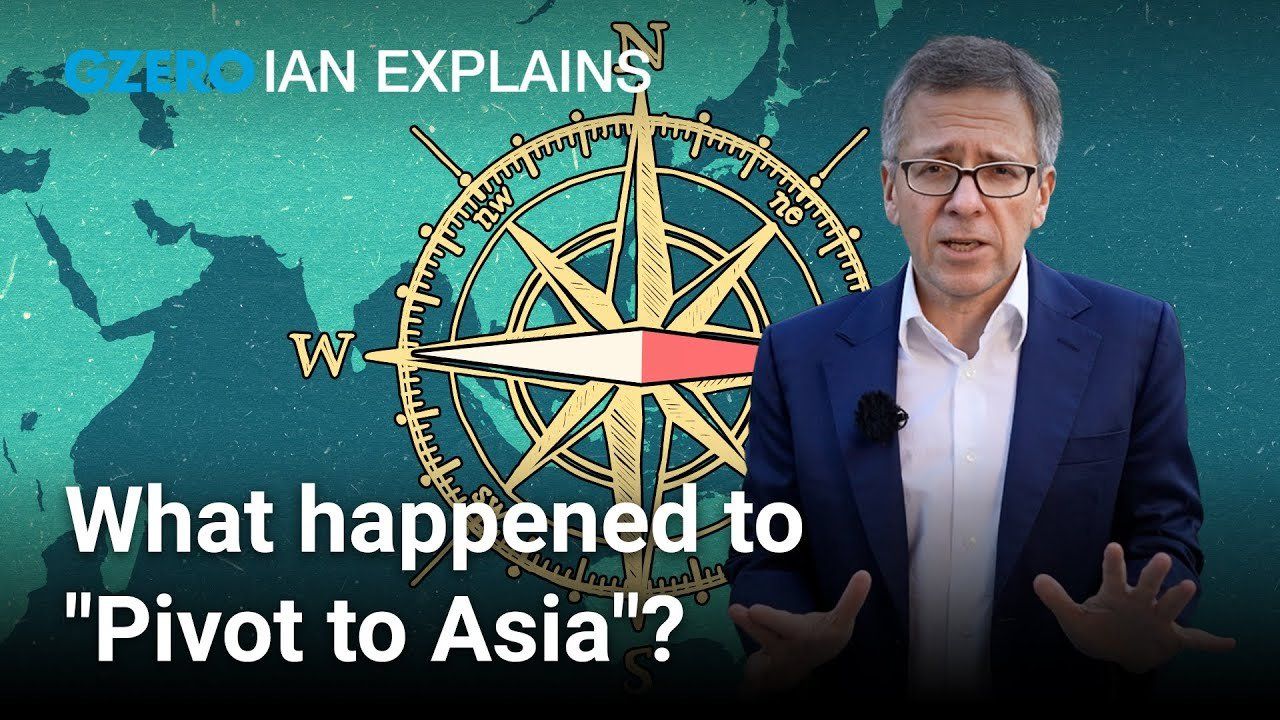Ian Explains
Ian Explains: How is America's "Pivot to Asia" playing out?

Ian Explains: How is America's "Pivot to Asia" playing out? | GZERO World with Ian Bremmer

Why can't the US seem to focus on the Asia-Pacific region instead of the Middle East?
In November 2011, President Barack Obama laid out his vision for America’s expanded role in the Asia-Pacific region, which soon became known as the "pivot to Asia.” American foreign policy, Obama announced, would be shifting its focus away from costly wars in the Middle East and towards strengthening partnerships in the Asia-Pacific to curb a rising China. In short, America’s 21st-century foreign policy would be pointed firmly to the East.
Fast-forward to 2023, and America’s “Pivot to Asia” is a little more complicated. The Israel-Hamas conflict, which could quite easily spiral into a larger regional war with the US and Iran, is only the latest example. And though not in the Middle East, the war in Ukraine remains one of the biggest and most expensive US foreign policy priorities. This is not, in short, the 21st-century foreign policy vision that President Obama had in mind.
And yet, if you talk to any American national security official, they’ll tell you that China’s rise remains Washington’s main national security challenge – after all, America’s biggest global rival is also one of its largest trade partners. That’s just one of the many reasons that President Biden and Chinese President Xi Jinping met at the sidelines of the Asia Pacific Economic Forum in San Francisco last month.
If the US is ever going to fully “pivot to Asia,” they must bring Japan along for the ride.
So, will 2024 be the year that the United States government makes good on decade-old pivot-to-Asia promise?
People in support of former South Korean President Yoon Suk Yeol rally near Seoul Central District Court in Seoul on Feb. 19, 2026. The court sentenced him to life imprisonment the same day for leading an insurrection with his short-lived declaration of martial law in December 2024.
65: The age of former South Korean President Yoon Suk Yeol, who was sentenced to life in prison on Thursday after being found guilty of plotting an insurrection when he declared martial law in 2024.
In an era when geopolitics can feel overwhelming and remote, sometimes the best messengers are made of felt and foam.
The Hungarian election is off to the races, and nationalist Prime Minister Viktor Orbán is facing his most serious challenger in 16 years.
Does skepticism rule the day in politics? Public opinion data collected as part of the Munich Security Conference’s annual report found that large shares of respondents in G7 and several BRICS countries believed their governments’ policies would leave future generations worse off.